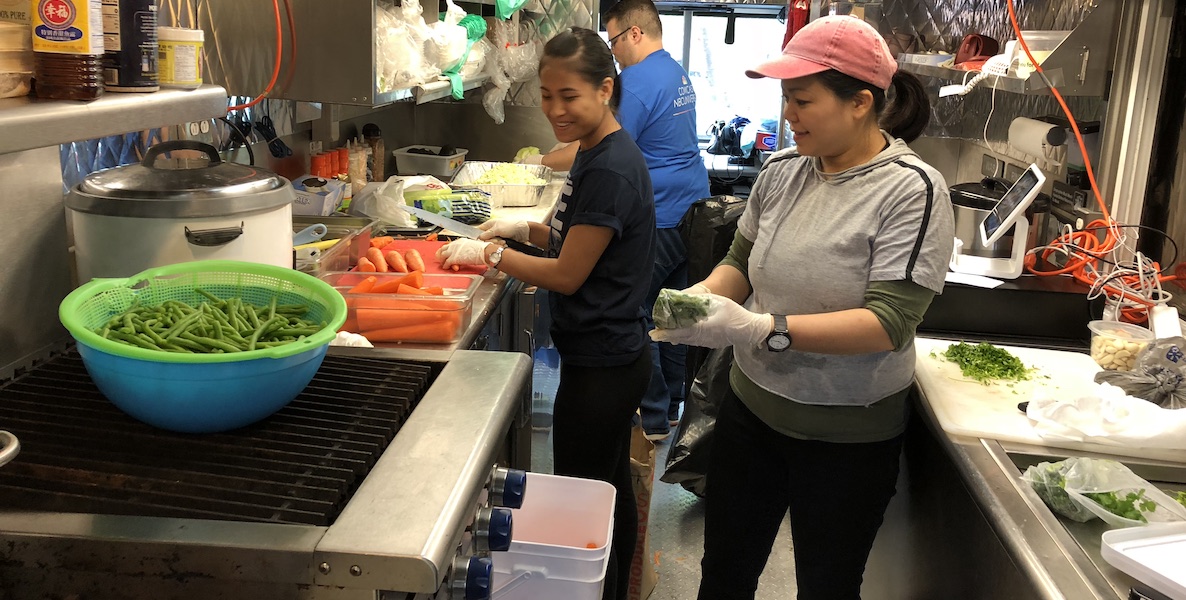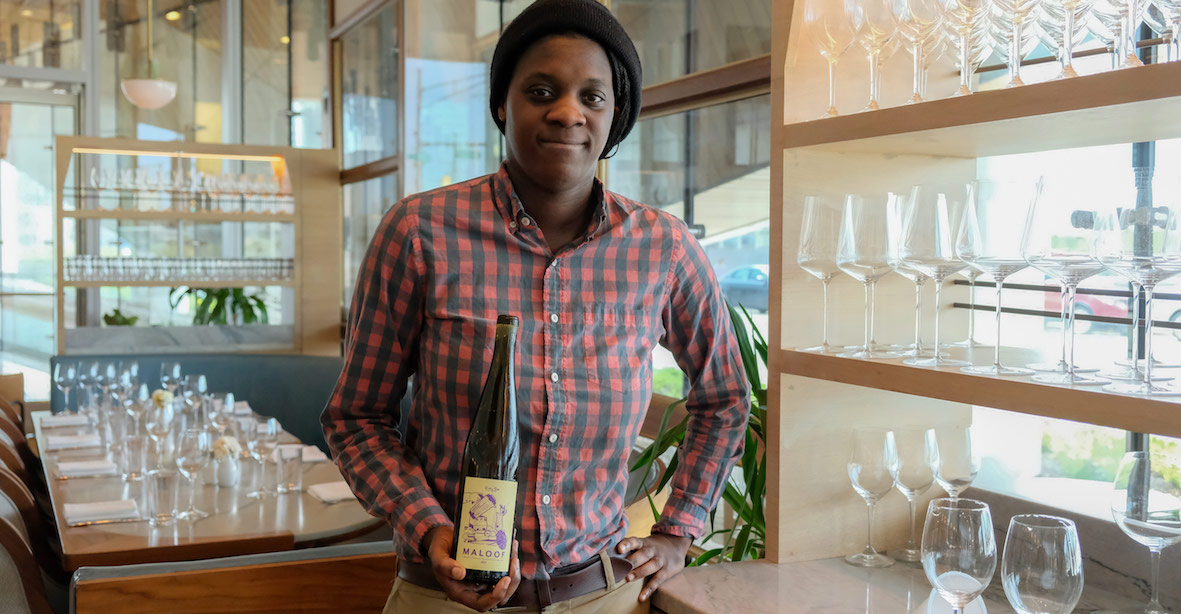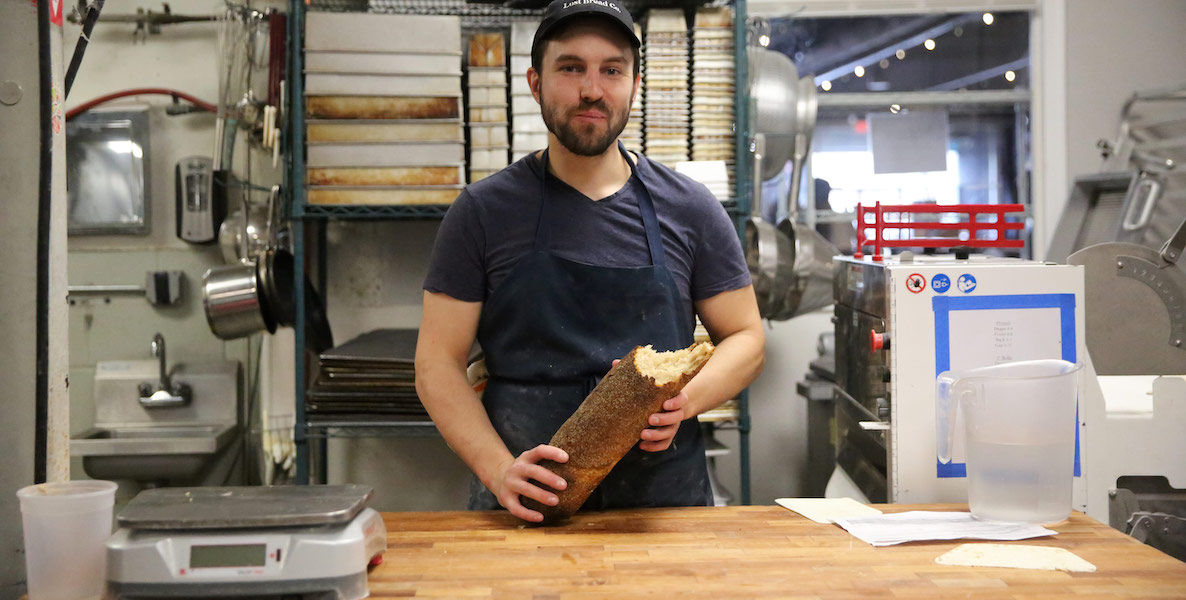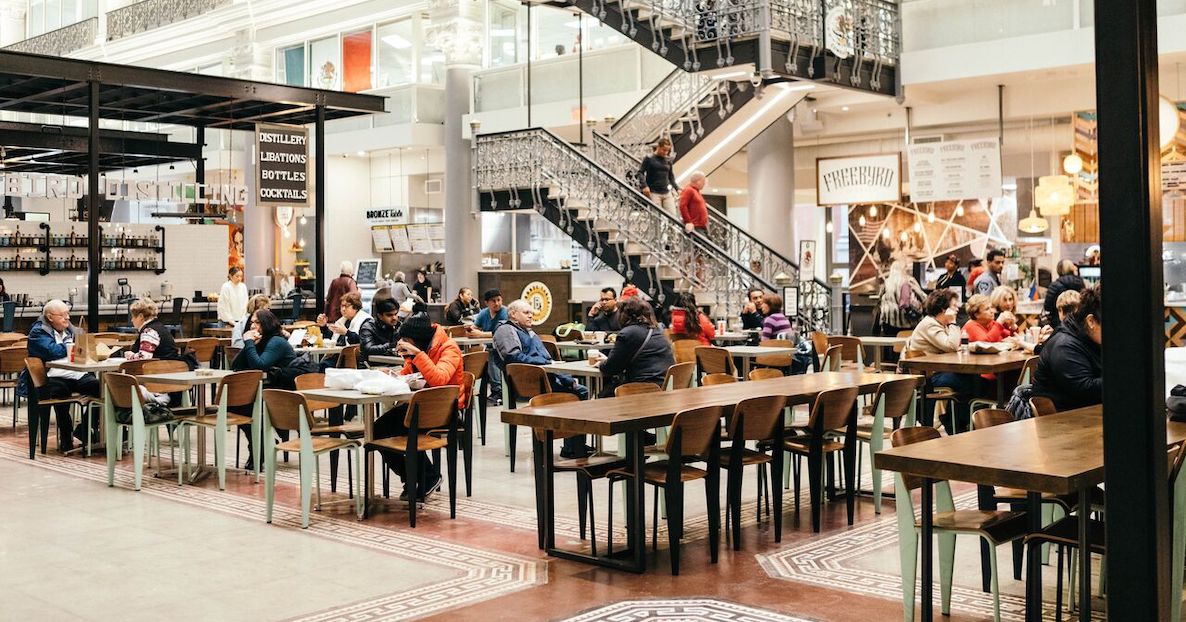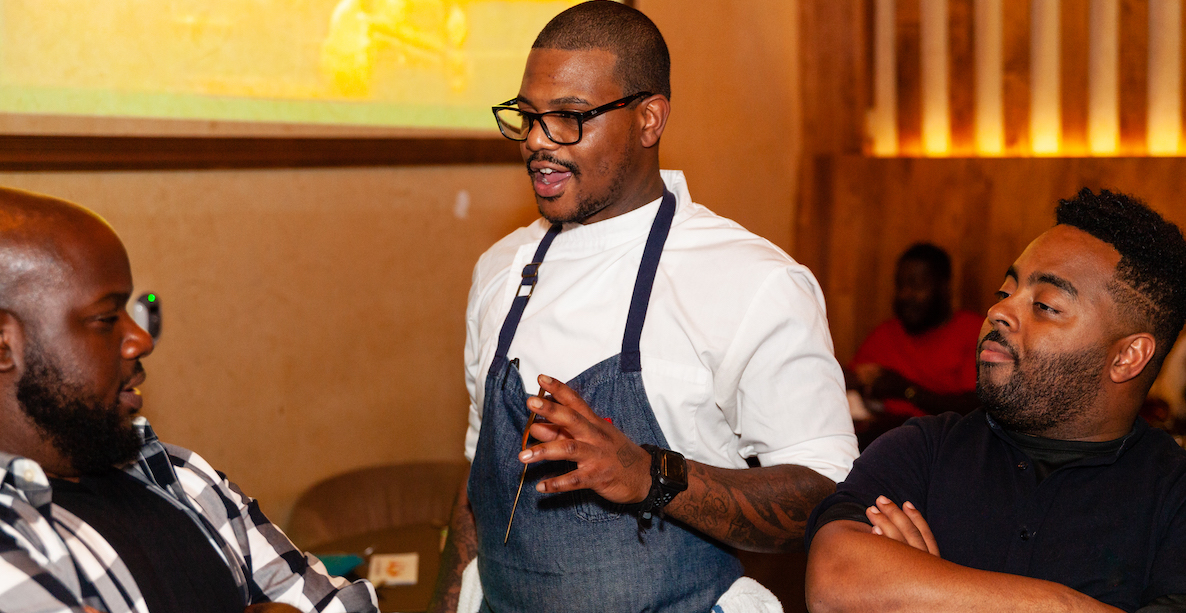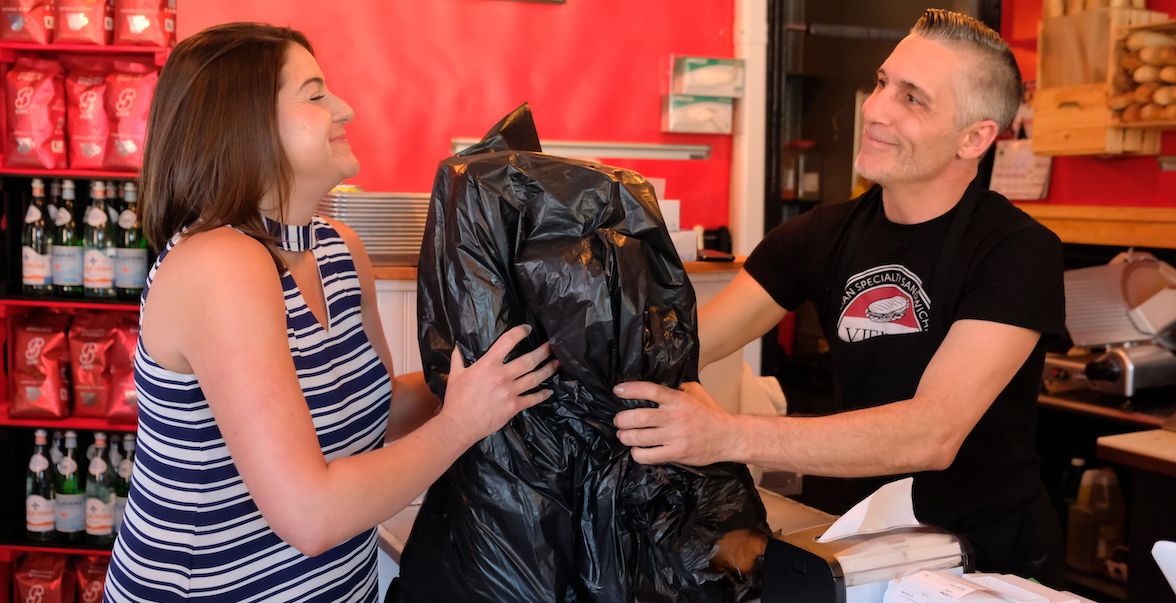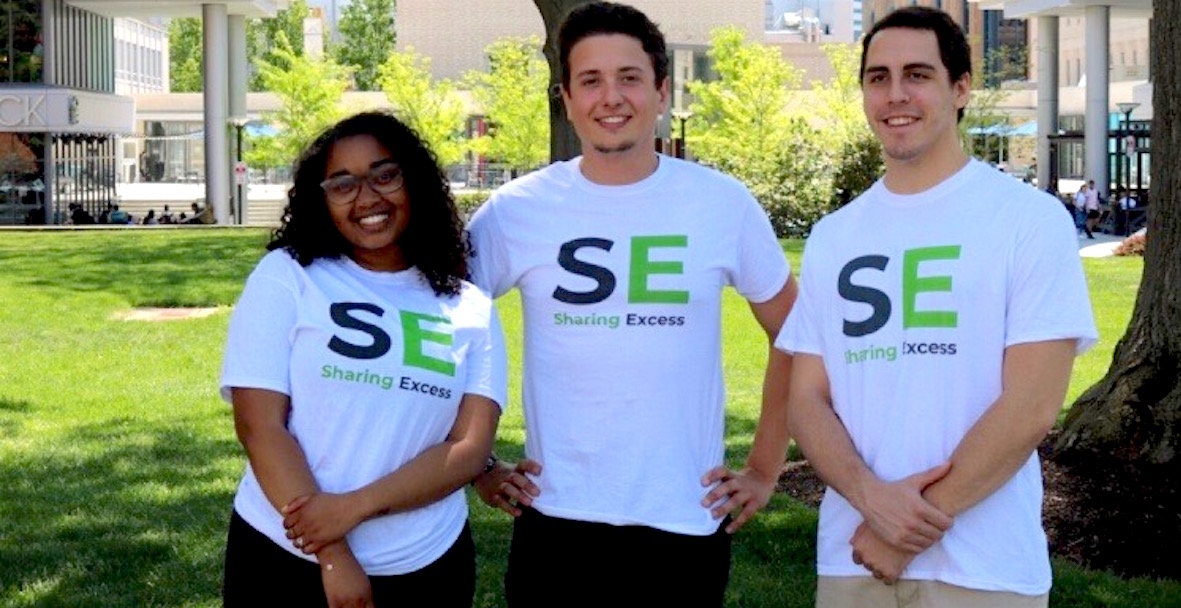Food waste is a complicated issue. It’s not as straightforward to solve as many feel-good food stories would have you believe. Certainly everyone can do their part, but using your beet greens or broccoli stems at home (instead of throwing them away) isn’t going to put much of a dent in the problem.

Prefer the audio version of this story? Listen to this article in CitizenCast below:

Consider this: In Philadelphia this year, over 326,000 people will lack access to enough food to be healthy. At the same time, some 20 percent of edible food ends up in the trash every day in Philly, and 90 percent of the region’s 700 food pantries and soup kitchens run out of food at some point during the year. Nationally, about 41 million people experience hunger, while nearly 300,000 pounds of food is wasted every month, according to the Environmental Protection Agency.
Combating food waste, then, is all about scale, how companies make their buying decisions, and what they do with all the excess.
“Restaurants want to donate food,” Stern says. “They just need a middleman.”
Abbe Stern saw this firsthand at the Rittenhouse Hotel, where she is operations and event manager. Many nights, Stern saw loaves and loaves of surplus bread going to waste after dinners and events. At first, late at night, she’d ask the kitchen to pile the bread on her desk, saying she’d figure out something to do with it. It was with the best of intentions to donate the bread.
But in the morning, with a pile of day-old bread on her desk, the logistical and practical realities set in. Who would pick up the donated food? Where could she call? When? Would they come on time? It was more complicated than it needed to be. “Restaurants want to donate food,” Stern says. “They just need a middleman.”
![]()
That’s why she created Fooding Forward, which coordinates with numerous Center City restaurants to donate surplus food, and connects them with groups who can get that food to people in need.
There had already been some efforts to create this food rescue middleman. Food Connect, for instance, is an app that allows restaurants or caterers to alert volunteers when there is extra food to donate to anti-hunger organizations. But using an app still requires an extra step. Fooding Forward addressed a need Stern was hearing about from her colleagues in the hospitality space: for food rescue organizations to create designated routes, where restaurants didn’t have to call for a pickup.

Stern herself is no stranger to hunger relief efforts. She’s been volunteering at food pantries since her undergraduate days at Johnson & Wales University, where she first realized that there is enough food on the planet to feed everyone. “The problem is distribution,” she says. In Philadelphia, she’s volunteered for organizations that needed to transport food to people in need, mostly with the Mitzvah Food Pantry. When she took the job at Rittenhouse Hotel, she found it was harder to find time to volunteer. “Then one day,” she says, “I had that temper tantrum/lightbulb moment in the banquet kitchen when I saw the trash can filled with rolls.”
“What’s great about Abbe is that she’s an insider within the industry, and helps us get connected with donors that otherwise would have been harder to access,” says Evan Ehlers, founder of Sharing Excess, a Philadelphia organization committed to food rescue and ending food waste.
Using a team of student drivers, Sharing Excess delivers surplus food to soup kitchens, shelters, housing authority centers, and food banks. Since it began in April 2018, Sharing Excess has delivered over 70,000 pounds of excess food, which has generated about 56,000 meals for people in need. “[Stern’s] service makes our job easier, and increases our donor network, and helps us grow our impact,” says Ehlers, who founded Sharing Excess when he was still a student at Drexel University. (Stern met Ehlers at a Citizen Speaks event last summer, and soon after they began working together.)
![]()
On the day I visited with Stern, one of Sharing Excess’ student volunteers, Kylei Reoun, arrived for the daily pickup of bread from the hotel kitchen. Then we all walked around the corner for another pickup at Caffe Vienna, where the guys behind the counter had two bags ready and waiting. Both pickups took less than five minutes. Fooding Forward is currently working with 12 restaurants and two hotels, and Stern estimates they’ve helped rescue about 6,000 pounds of food in the past year.
Stern says an efficient food donation system like this boils down to trust, on both sides. “All food can truly be rescued,” Stern says. “But we need to make sure that someone’s there to pick up the food. And also to make sure that food is there to pick up.” All it takes is one missed pickup, and a restaurant stuck with spoiling food, to break that trust. “That happens once, and you don’t get a call back.”
![]()
That’s why Fooding Forward began, simply, with bread. “Bread is consistent. It’s used at every meal, every single day. There will always be bread to rescue,” she says.
As Fooding Forward has grown, it’s now working with CookNSolo Restaurant Partners to develop a “pita route” to collect from around nine restaurants, including Dizengoff and Abe Fisher, as well as a few grocery stores. Stern says that DiBruno Bros. has contacted her about donating excess soup, mac n’ cheese, and other prepared foods. “Once we build the trust with bread, we’re trusted to handle more,” she says.
So has that morning pile of bread left on her desk kept growing, too?
“No, no,” Stern says, with a laugh. “Now, they just keep it in the kitchen for us.”
Jason Wilson is The Citizen’s 2019 Jeremy Nowak Fellow, funded by Spring Point Partners, in honor of our late chairman Jeremy Nowak. He is the author of three books, including most recently Godforsaken Grapes, series editor of The Best American Travel Writing, and writes for the Washington Post, New York Times, New Yorker and many other publications.
Photo courtesy Anthony Pezzotti



